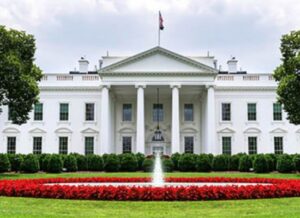
Congress has yet to tackle several outstanding uncertainties frustrating both businesses and individual taxpayers. The Tax Cuts and Jobs Act (TCJA), for example, contains several “glitches” requiring legislative fixes. Congress also has neglected to pass the traditional “extenders” legislation that retroactively extends certain tax relief provisions that expired at the end of an earlier year, in this case 2017.
Tax Cuts and Jobs Act Glitches
The sprawling TCJA signed into law in late 2017 contains some inadvertent glitches that range from a lack of clarity to significant drafting errors. In some cases the glitches may produce unintended and costly consequences. Here are examples of two glitches that still need to be addressed and one that has been addressed recently:
The “Retail” Glitch.
This prevents retailers, restaurants and other businesses from enjoying 100% bonus depreciation on certain assets. Before the TCJA’s enactment, qualified retail improvement property, qualified restaurant property and qualified leasehold improvement property were depreciated over 15 years under the modified accelerated cost recovery system (MACRS) and over 39 years under the alternative depreciation system (ADS).
The TCJA classifies all of these property types as qualified improvement property (QIP). QIP generally is defined as any improvement to the interior of a nonresidential real property that’s placed in service after the building was placed in service.
Congress intended QIP that is placed in service after 2017 to have a 15-year MACRS recovery period and a 20-year recovery under the ADS. Because 15-year property is eligible for bonus depreciation, Congress also intended QIP to be eligible for that break.
Yet, the 15-year recovery period for QIP doesn’t appear in the statutory language of the TCJA, even though it’s found in the Joint Explanatory Statement of Congressional Intent. Until technical corrections are made, therefore, QIP has a 39-year MACRS recovery period, making it ineligible for bonus depreciation.
In late March 2019, a bipartisan bill that would fix the error was introduced in the U.S. House of Representatives. The Restoring Investment in Improvements Act mirrors bipartisan legislation introduced in the Senate in mid-March. But many Democrats in Congress haven’t supported this and other TCJA fixes, due to their complaints about how the law was enacted. Some lawmakers advocate tying such fixes to other tax code changes that might otherwise come up short on the votes necessary for passage.
In the meantime, taxpayers who have invested in QIP might consider cost segregation studies. By separating out QIP from other types of property, they could still qualify for some bonus depreciation.
Effective Date Glitch for the NOL Deduction.
The TCJA implemented several changes to deductions for net operating losses (NOLs). Specifically, it limits the deduction to 80% of taxable income, eliminates most NOL carrybacks and allows unlimited carryforwards (vs. 20 years under prior law).
The statutory text states that changes to carrybacks and carryforwards apply to NOLs arising in taxable years ending after December 31, 2017 — but the Conference Report says they apply to NOLs arising in taxable years beginning after December 31, 2017. The statute and the report agree that the 80% limitation applies to losses arising in taxable years beginning after December 31, 2017. Because statutory language controls, a mismatch now exists between the effective dates for the 80% limitation and the changes to NOL carrybacks and carryforwards.
Congress’s Joint Committee on Taxation has confirmed that all of the changes should apply to NOLs in tax years beginning after 2017. It notes, though, that technical corrections may be necessary. As of this writing, no correcting legislation has been introduced in Congress.
Proposed Tax Extenders
Many of the income tax provisions that Congress enacts are temporary. As a result, Congress routinely temporarily reauthorizes some of these more popular provisions before or after they expire.
In late February 2019, Sens. Chuck Grassley (R-IA) and Ron Wyden (D-OR) introduced the Tax Extender and Disaster Relief Act of 2019. Among other things, the legislation would extend through 2019 more than two dozen tax breaks that expired at the end of 2017, including the:
• New Energy-Efficient Home Credit ($1,000 or $2,000 per home for eligible manufacturers of qualified energy-efficient residential homes),
• Exclusion from gross income of discharge of qualified principal residence debt (up to $2 million for married couples filing jointly and $1 million for other taxpayers),
• Mortgage insurance premiums deduction (phasing out for taxpayers with adjusted gross income over $100,000 or, if married filing separately, $50,000),
• Deduction for qualified tuition and related expenses (up to $4,000 per year subject to income limitations), and
• Empowerment zone tax incentives, including tax-exempt bond financing, a wage credit, accelerated depreciation on qualifying equipment and capital gains tax deferral in designated geographic areas.
As of this writing, corresponding legislation hasn’t been introduced in the U.S. House of Representatives.
A Waiting Game
In light of the current political climate in Washington, D.C., it remains to be seen whether any of the outstanding issues will be resolved in the near future. We’ll keep you apprised of any updates. In the meantime, if you have any questions, please contact Tax Services Director Richard Morris.
Councilor, Buchanan & Mitchell (CBM) is a professional services firm delivering tax, accounting and business advisory expertise throughout the Mid-Atlantic region from offices in Bethesda, MD and Washington, DC.
© 2019



